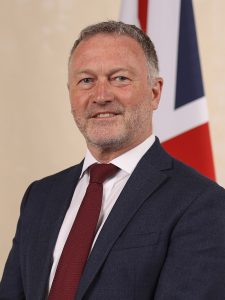The Water (Special Measures) Act 2025, first introduced into Parliament on 4 September 2024, received Royal Assent yesterday from King Charles III.
Royal Assent is the last step required for a parliamentary bill to become law. The King can refuse or delay the bill, but upon granting royal assent, the bill becomes an Act of Parliament (law). The bill, now known as The Water (Special Measures) Act 2025 will give regulators new powers to take tougher and faster action.
The Act delivers on the Government’s manifesto pledges to clean up the water sector, including increasing the ability of the Environment Agency to bring forward criminal charges against water executives who break the law. It will create new tougher penalties, including possible imprisonment, for water executives who obstruct investigations.
The new legislation will provide powers for Ofwat to ban the payment of bonuses to water bosses if they fail to meet high standards to protect the environment, their consumers, and their company’s finances.
Other measures in the Act include automatic penalties to allow regulators to issue penalties more quickly, without having to direct resources to lengthy investigations. It will also introduce independent monitoring of every sewage outlet, with water companies required to publish real-time data for all emergency overflows. Discharges will have to be reported within an hour of the initial spill.
Environment Secretary Steve Reed said:

“We promised to put water companies under tough special measures to clean up our waterways. Today, the Government has delivered on that promise as we continue to deliver on our Plan for Change.
“Polluting water bosses will no longer be paid undeserved bonuses. And if they break the law over water pollution, they could end up in the dock and face prison time.
“This is just the beginning. The Independent Water Commission will report back later this year to shape new laws that will transform our water system so we can clean up our rivers, lakes, and seas for good.”
The Act introduces bold new measures to clean up the industry, including:
- Enhanced enforcement powers: The Environment Agency will have increased ability to bring criminal charges against water bosses who break the law, who could face tougher penalties such as imprisonment of executives when companies fail to cooperate or obstruct investigations. The cost recovery powers of regulators will be expanded to ensure that water companies bear the cost of enforcement action taken in response to their failings.
- Ban on bonuses: Ofwat will have the power to set rules prohibiting the payment of executive bonuses if companies fail to meet high standards in protecting the environment, their consumers, and financial resilience.
- Automatic penalties: Automatic penalties will be introduced for a range of offences, allowing regulators to issue penalties more quickly without redirecting resources to lengthy investigations.
- Independent monitoring: Every emergency sewage outlet will be monitored, with data independently scrutinised and made publicly available within an hour of sewage spills occurring. This will ensure transparency and direct further investment to improving sewage infrastructure.
- Pollution Incident Reduction Plans (PIRPs): Water companies in England will be required to publish annual Pollution Incident Reduction Plans and report regularly on their progress, enabling the public and regulators to hold companies accountable for reducing pollution incidents.
The Act marks a major milestone in the government’s long-term approach to tackling the systemic issues in the water sector – helping to meet the challenges of the future, such as climate change, and driving economic growth.
Further legislation aimed at fundamentally transforming how our entire water system operates will be guided by the findings of the Independent Water Commission, led by Sir Jon Cunliffe, which is currently conducting the largest review of the industry since privatisation.



